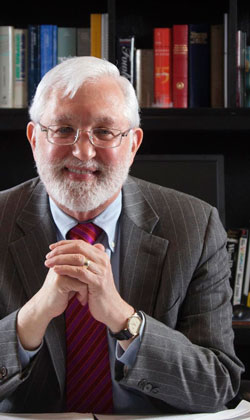Lack of Wall Street prosecutions spurs federal judge's critical essay
A New York federal judge is criticizing the U.S. Justice Department for failing to prosecute Wall Street executives who may have played a role in the financial crisis.

File photo of U.S. District Judge Jed Rakoff by Stringer/Reuters/Corbis.
The “blistering essay” by U.S. District Judge Jed Rakoff criticizes some of the government’s proffered reasons for inaction, the New York Times reports. The story offers a preview of the essay published in the New York Review of Books.
Rakoff agrees that it can be difficult to prove criminal intent, but suggests the government could use the theory of “willful blindness” to prosecute. He also discounts Attorney General Eric Holder’s suggestion that some prosecutions could have a negative effective on the economy.
“This excuse—sometimes labeled the ‘too big to jail’ excuse—is disturbing, frankly, in what it says about the department’s apparent disregard for equality under the law,” he writes.
Rakoff offers his own speculation why the government isn’t acting. One theory is that there were other priorities, including terrorism. A second is that the government also had a role in the financial crisis, making it possible for bank executives to argue they believed they were acting as the government intended.
The third theory, dubbed the most interesting by the Times, is that the Justice Department has shifted to prosecuting companies rather than individuals, a move that has led to large monetary settlements.
“From a moral standpoint,” Rakoff writes, “punishing a company and its many innocent employees and shareholders for the crimes committed by some unprosecuted individuals seems contrary to elementary notions of moral responsibility.”



